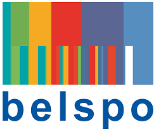PLOS ONE published a study protocol devised by Khan and colleagues. This protocol was developed to construct a flexible decision-analytic Markov model intended to assess the health and economic impacts of delayed cancer care during the COVID-19 pandemic in Belgium, specifically targeting breast, colorectal, lung, and head and neck cancers.
The methodology incorporated a range of input parameters, such as published studies for transition probabilities, utilities, and indirect costs, along with administrative databases for epidemiological data and direct medical costs. It detailed the application of one-way and probabilistic sensitivity analyses to manage uncertainties in the model inputs and discussed scenario analyses to evaluate methodological and structural assumptions.
This protocol serves as a foundational framework for an impending Markov model that will utilize comprehensive national data to analyze cancer care delays.
The full article is available via https://doi.org/10.1371/journal.pone.0288777

